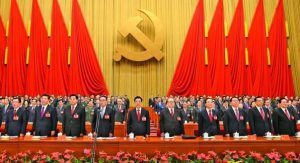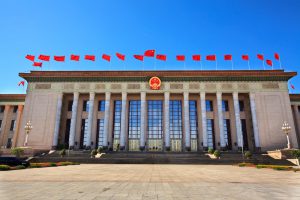All of the current seven members of the Politburo’s Standing Committee have previously been in charge of regional politics, except Liu Yunshan whose remit has always been focussed on ideology.
Xi Jinping and Li Keqiang ended their terms as senior local officials many years ago, and Zhang Dejiang held an office in the State Council until 2008 when he was given the position of Chongqing Party Secretary following the Bo Xilai incident in 2012. The other three, until recently, all acted as leaders in provinces and municipalities.
During Yu Zhengsheng’s term in Shanghai, the 2010 Shanghai World Expo was held and, for the first time, the concept of a “Low Carbon” Expo was born. As well as measures such as the architectural integration of photovoltaics and the installation of public benches made from recycled material, many different low carbon methods and technologies were tested, such as pneumatic waste conveyance and, borrowing ideas from ancient Chinese landscaping, channelling natural wind to reduce the need for air conditioning.
Wang Qishan once held the posts of chairman of the Beijing Olympics Organising Committee, and party deputy secretary. The slogan of “Green Olympics” has since become widely-known.
He also pushed a move towards natural gas as part of Beijing’s Coal-to-Gas Initiative. Despite continuously promoting the construction of a gas pipeline from Shaanxi to Beijing, Wang Qishan was tested in the winter of 2004 when a supply bottleneck in natural gas led to a heating shortage. He said that the move from coal to gas had not taken into account the amount of gas needed for suburbs and newly completed building projects.
After the completion of four natural gas pipelines in 2012, Beijing announced the final shutdown of the four remaining coal power plants.
In Tianjin, the area headed by Zhang Gaoli, there is the Tianjin Economic Development Area (TEDA) Low Carbon Zone and the Sino-Singapore Tianjin Eco-City, which gave birth to the TEDA centre of low carbon economy promotion that has long been at the forefront of research in low carbon industrial parks.
In addition to focusing on the implementation of low carbon strategies, these three areas also entered the first Chinese pilot scheme for carbon emissions trading.
Translated and edited by chinadialogue volunteers Jonas Borchers and Hope Loudon respectively.




